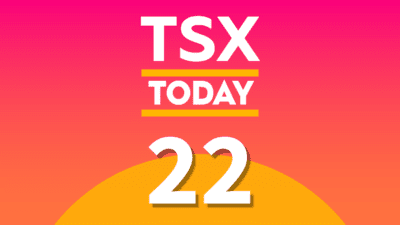Lost in all the hoopla and excitement of Monday’s bombshell announcement that Aurora Cannabis Inc. (TSX:ACB) is buying MedReleaf Corp. (TSX:LEAF) for $3.2 billion is the question of what happens to Green Organic Dutchman Holdings Ltd. (TSX:TGOD), one of Aurora Cannabis’s minority investments.
From where I sit, TGOD’s place in the Aurora pecking order seems to have just gotten knocked down a rung or two, but others don’t see it that way.
Ben Smith, who writes the Midas Letter investment newsletter, believes TGOD is a big winner in the merger aftermath because of its relationship with both Aurora and MedReleaf.
“Ultimately, as Aurora Cannabis becomes the clear medicinal product maker, volumes should steadily increase over time. Given the probable unification of Aurora and MedReleaf, it’s not hard to envision The Green Organic Dutchman becoming further entangled in the operational structure of both entities,” Smith wrote May 14. “To what scope remains to be seen, but Aurora getting bigger can only mean positives for TGOD along the way.”
Currently, Aurora owns 17.6% of TGOD with an option to up its ownership to over 50% based on it meeting specific financial and operational targets. Also, Aurora has a purchase agreement in place with TGOD that gives it the right to buy up to 23,600 kilograms of organic cannabis annually; that amount goes up if Aurora increases its ownership stake in the company.
Now, here’s why I have a problem with Smith’s assessment.
Dilution hell
It’s far too early to speculate on the ultimate success or failure of this massive deal between Aurora and MedReleaf. However, data readily available suggests most monster M&A deals fail to deliver the promised synergies, cost savings, and whatever other benefits mergers are thought to provide. They don’t.
In this instance, the dilution alone — I estimate Aurora will have to issue 386 million shares to pay for its acquisition — is enough to drive this deal right off a cliff.
“The hard math of this particular deal is that more dilution is on the way for Aurora shareholders. The price for the acquisition isn’t cheap,” wrote Fool contributor Keith Speights May 16. “There’s one thing you can say for Aurora Cannabis’ executives, though: They’re not afraid to go big.”
He’s not wrong.
So, why in the world would Aurora CEO Terry Booth spend more than a minute thinking about a $78 million investment in TGOD when he’s just diluted the heck out of his existing shareholders?
The short answer: he wouldn’t.
Aurora currently has approximately 113,000 kilograms per year capacity. TGOD adds another 23,600, a 20% increase. However, MedReleaf will have 140,000 kilograms of capacity once its Exeter, Ontario, is fully retrofitted, bringing Aurora’s total annual capacity to 253,000 kilograms without TGOD’s contribution.
I understand the general motto in the cannabis trade is that you can never have enough capacity, especially when it’s a quality product, but you don’t pay something like 76 times revenue for a company that doesn’t bring the goods.
The bottom line on TGOD
The winners and losers from this multi-billion-dollar deal won’t be known for at least two to three years. If TGOD’s product is the best in the business, as some suggest, it’s not going to need Aurora’s help selling product.
However, if you see Aurora caring about your tiny little company when it’s up to its eyeballs in diluted stock, you’re smoking some of its products.
My advice: forget about Aurora and focus on what TGOD is doing to build a legitimate business. Hitching your wagon to a company that’s proven it doesn’t care about its own shareholders suggests it definitely won’t care about TGOD’s.
Beware the man who comes bearing gifts.







